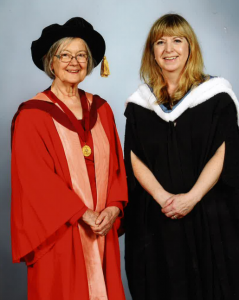By Prof Jonathan Hill, Professor of Law (University of Bristol Law School).
Back in the 1980s, the Departmental Advisory Committee on Arbitration Law recommended against England adopting the UNCITRAL Model Law on International Commercial Arbitration (‘Model Law’ or ‘ML’). Nevertheless, during the course of the reform process that led to the Arbitration Act 1996, the Model Law played a significant role and its impact can clearly be seen in terms of the 1996 Act’s structure, style and content. Nevertheless, English law retains a number of distinctive features and, even in those areas in which the objectives of the 1996 Act broadly mirror those of the Model Law, there are places where the two legislative schemes diverge.
One significant area of difference is the setting aside of awards. On this issue, the Model Law is, at first blush, simplicity itself. The six grounds for setting aside under art 34 ML replicate bases set out in article V of the New York Convention of 1958 (‘NYC’) on which an award rendered in country A may be refused recognition/enforcement in country B. (For obvious reasons, art 34 ML contains no provision corresponding to art V.1.e NYC.)
The Arbitration Act 1996 approaches setting aside in a very different way. First, in keeping with the traditions of English arbitration law, the 1996 Act provides that, albeit in carefully circumscribed and narrow circumstances, an award may be set aside on the basis that, as regards the merits of the dispute, the arbitral tribunal made an error of English law (s 69). The Model Law, by contrast, follows the modern international practice of making no provision for setting aside because the tribunal did not reach the correct result, either on the facts or the law. Secondly, the 1996 Act separates ‘jurisdictional’ defects (s 67) from ‘procedural’ and other defects (s 68). Thirdly, section 68 lists a total of twelve ‘procedural’ grounds on which an award may be set aside. This contrasts with the ML’s two ‘procedural’ grounds (art 34.2.a.ii and iv). Fourthly, whereas article 34 ML provides simply that an award ‘may’ be set aside if one of the grounds is established (giving the supervisory court a degree of flexibility), an award cannot be set aside under section 68(2) unless the procedural defect relied on by the applicant has caused or will cause substantial injustice to the applicant.
The combined effect of these differences is to produce setting-aside regimes which, although largely seeking to implement the same policies, work in rather different ways. This point can be illustrated by the quite common scenario in which, after an award has been rendered, one of the arbitrants (typically, a respondent whose defence was wholly or partly unsuccessful) challenges the award on the basis that it fails to address an issue which was raised in the arbitration. (more…)

